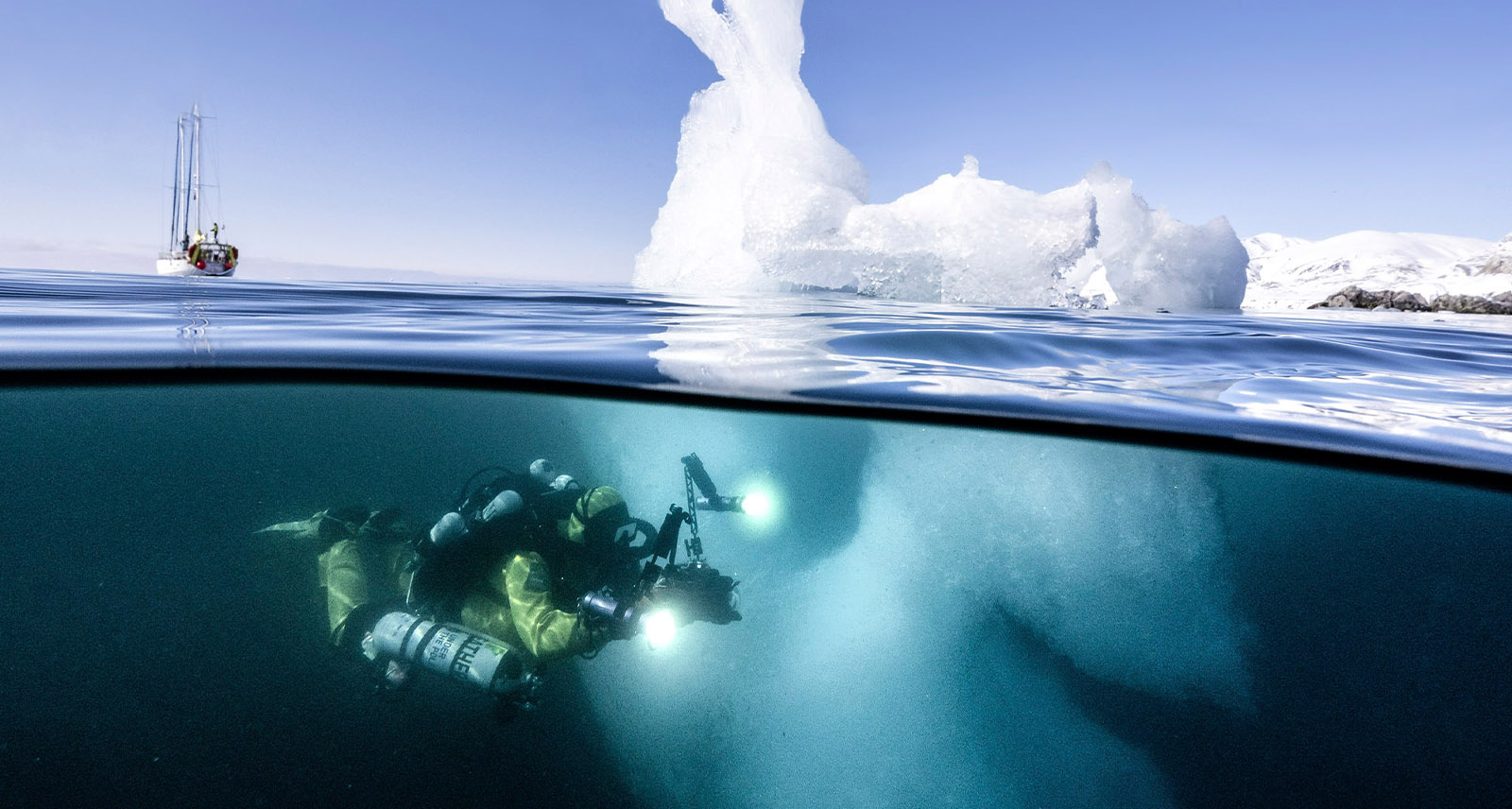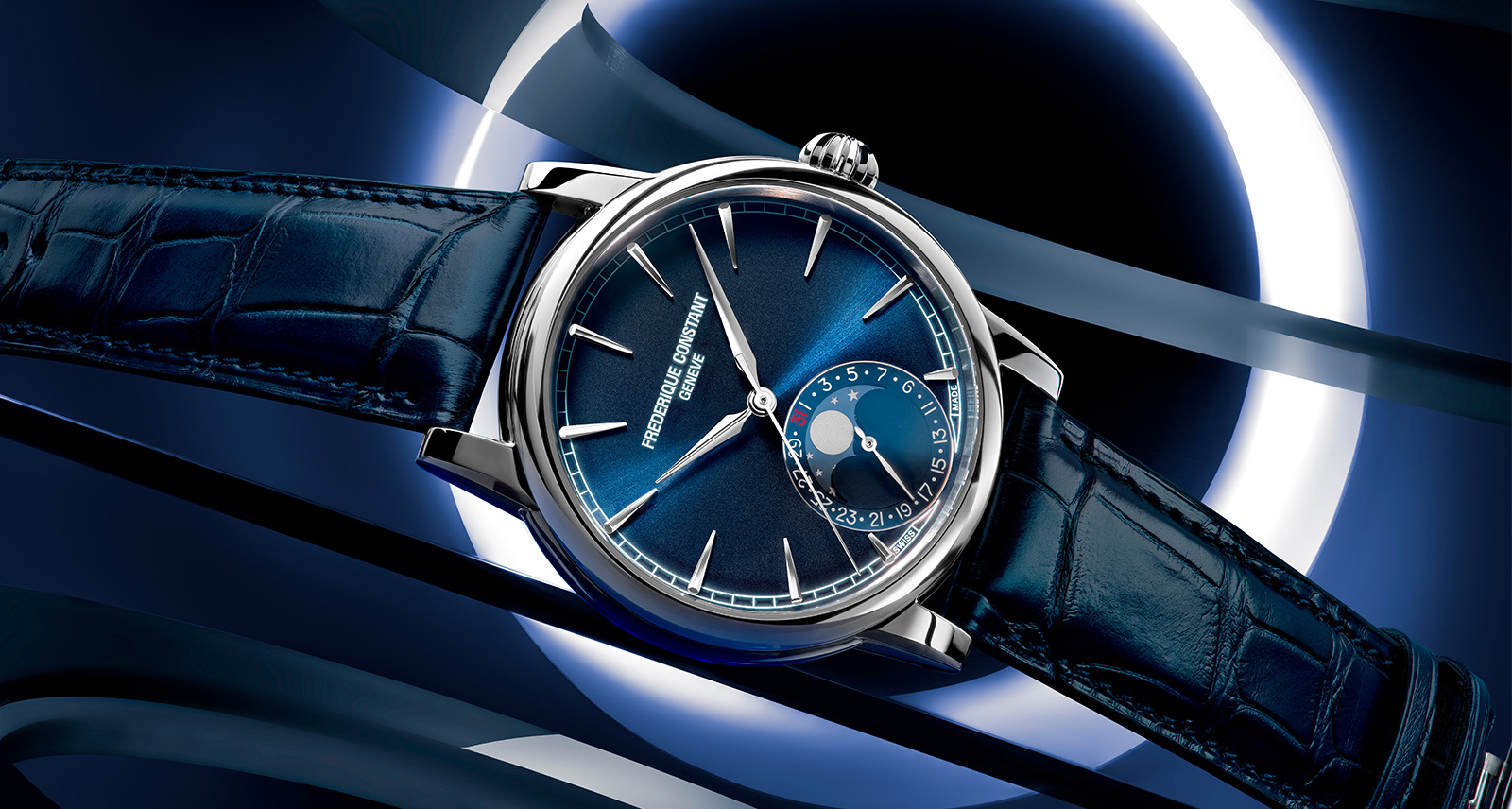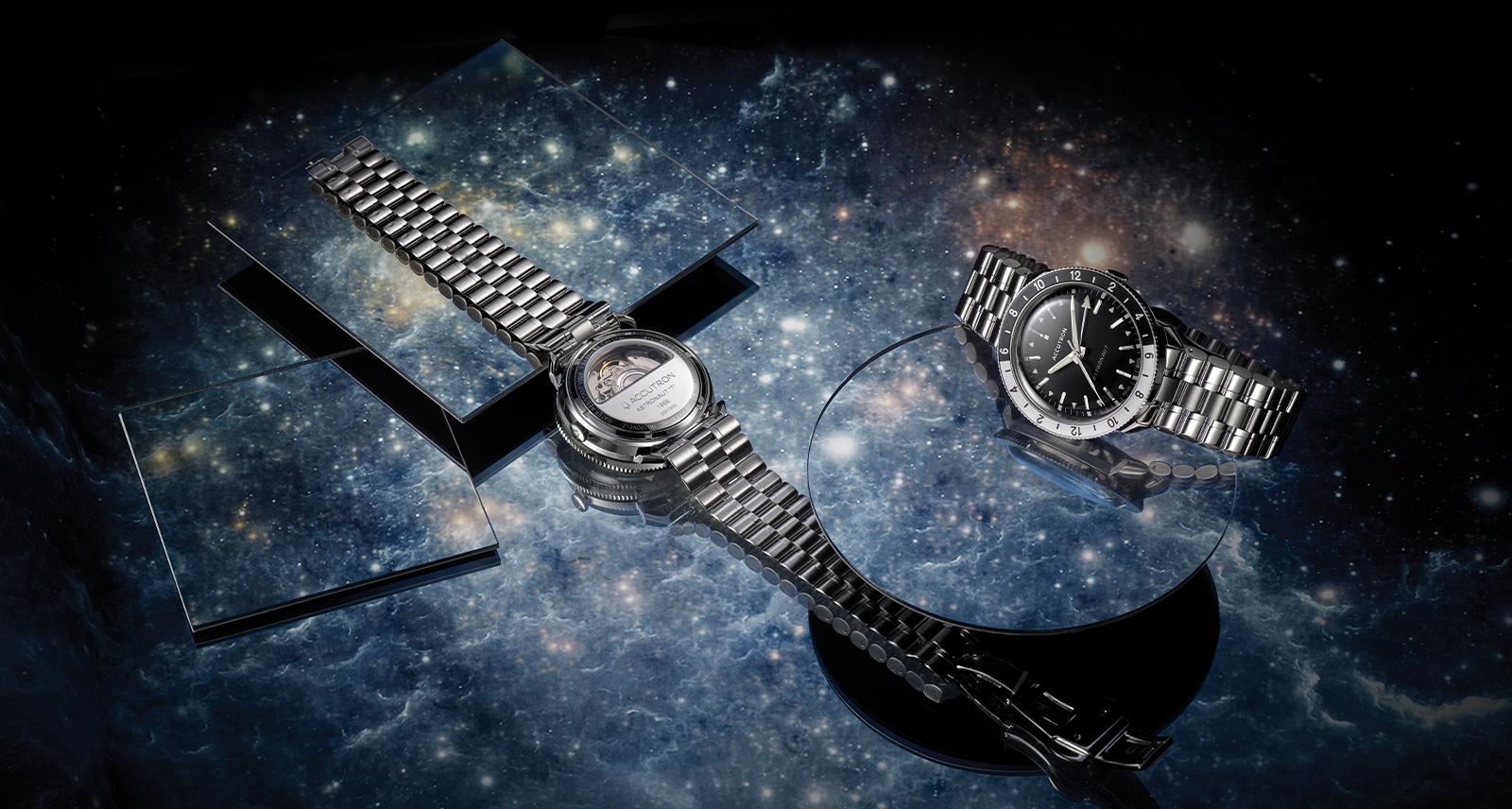Perpetual Planet Initiative: Rolex Supports Scientists On Arctic Adventure
His first two dives were unsuccessful, but on the third, approaching 80 metres below the surface of the Arctic Ocean, Ghislain Bardout found what he was looking for: a forest. Unlike forests on land, which are fed by sunlight and rainwater, what Bardout and his team discovered in the dimly lit depths off Svalbard, Norway looked like something from another planet.
Populated by hydroids, jellyfish-like predators with delicate tendrils resembling flowers and ferns, this glade is part of an ecosystem that scientists know very little about. With climate change making its most extreme impacts at the poles, however, the future of creatures living in undersea gardens like this one could be in jeopardy. That’s what makes Bardout’s latest mission, dubbed Deeplife, so important.
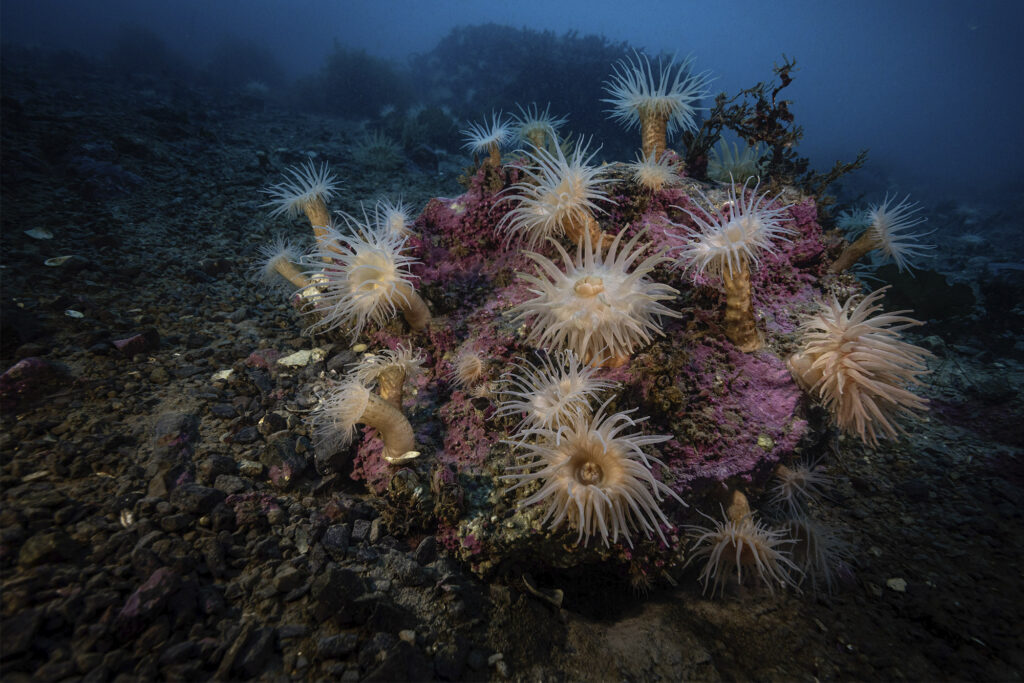
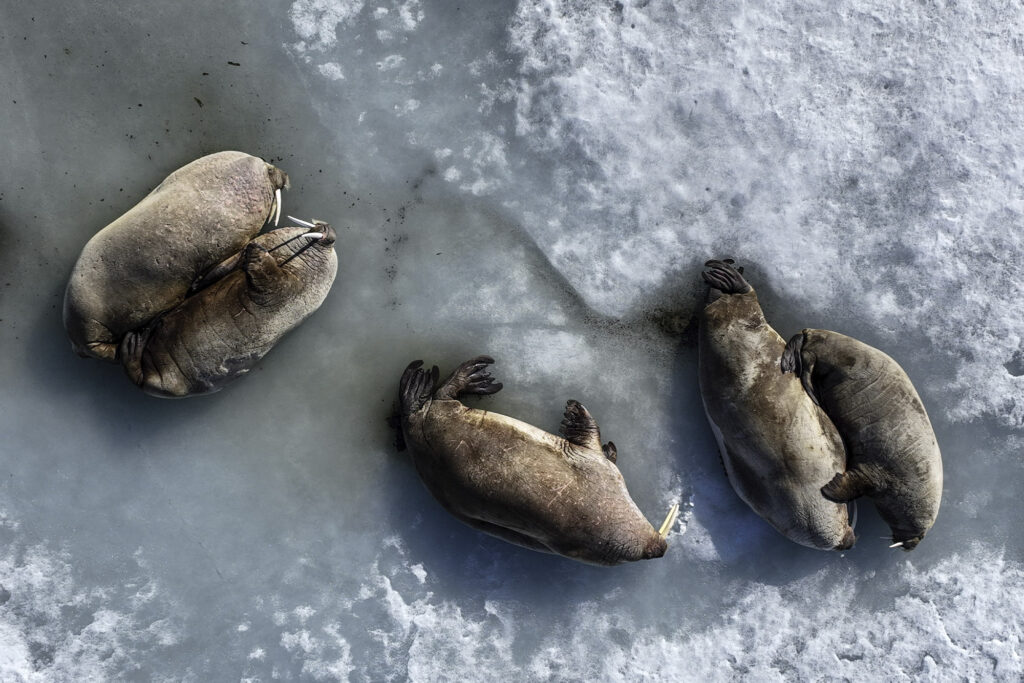
Along with his wife, Emmanuelle Périé-Bardout, Bardout is the co-founder and co-director of Under the Pole, a nonprofit organization dedicated to exploring the world’s oceans and spreading awareness about the unique ecosystems found there. With a host of factors threatening aquatic life, from acidification and rising sea temperatures to plastic pollution and overfishing, there has never been a more important time to undertake this work, the Bardouts say.
“If we cut down a forest on land, we lose the habitat of thousands of species that are essential to biodiversity,” explains Périé-Bardout. “Underwater, it’s the same, but the difference is we don’t see our marine forests. The idea of Deeplife is to make the invisible visible.”
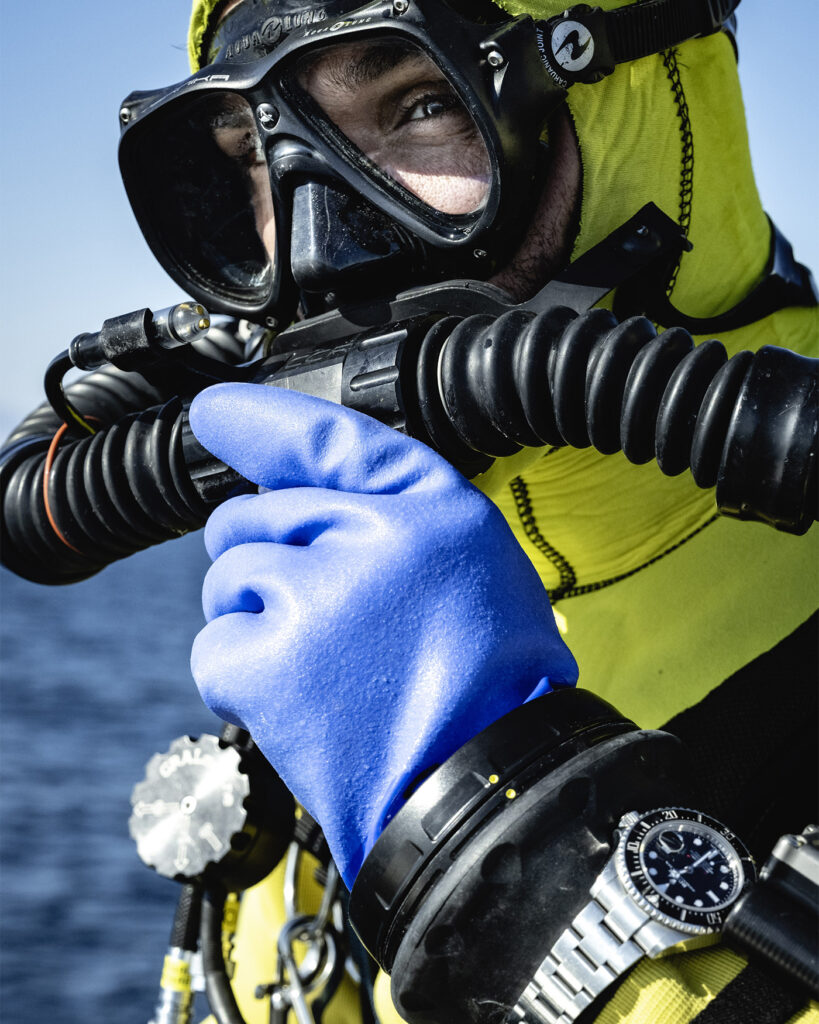
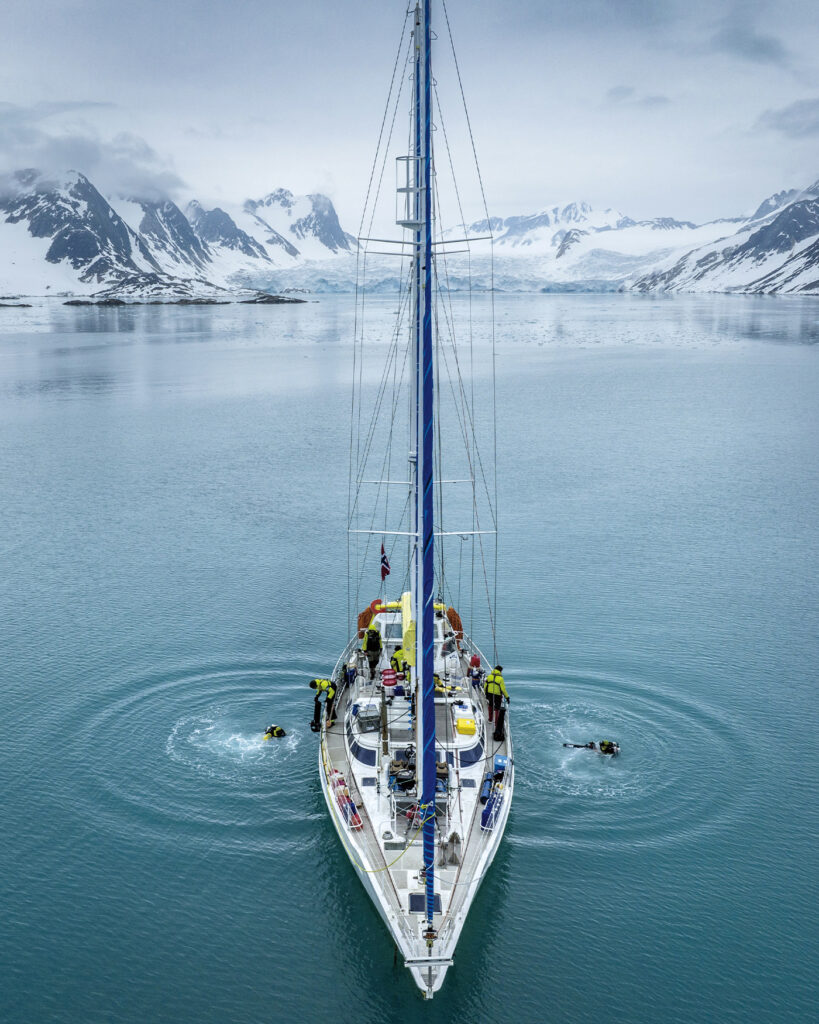
With help from Rolex’s Perpetual Planet initiative, which promotes exploration to preserve the natural world, Deeplife is dedicated to expanding scientific knowledge of marine animal forests in the oceans’ mesophotic zone.
Located between the ocean’s brightly lit shallow waters and its deepest, darkest depths, a wide array of marine life makes its home here, and much of it can be found nowhere else. While shallower depths of the oceans have been explored for decades, it’s only recently, thanks to advancements in diving technology, that scientists have begun to explore this region.
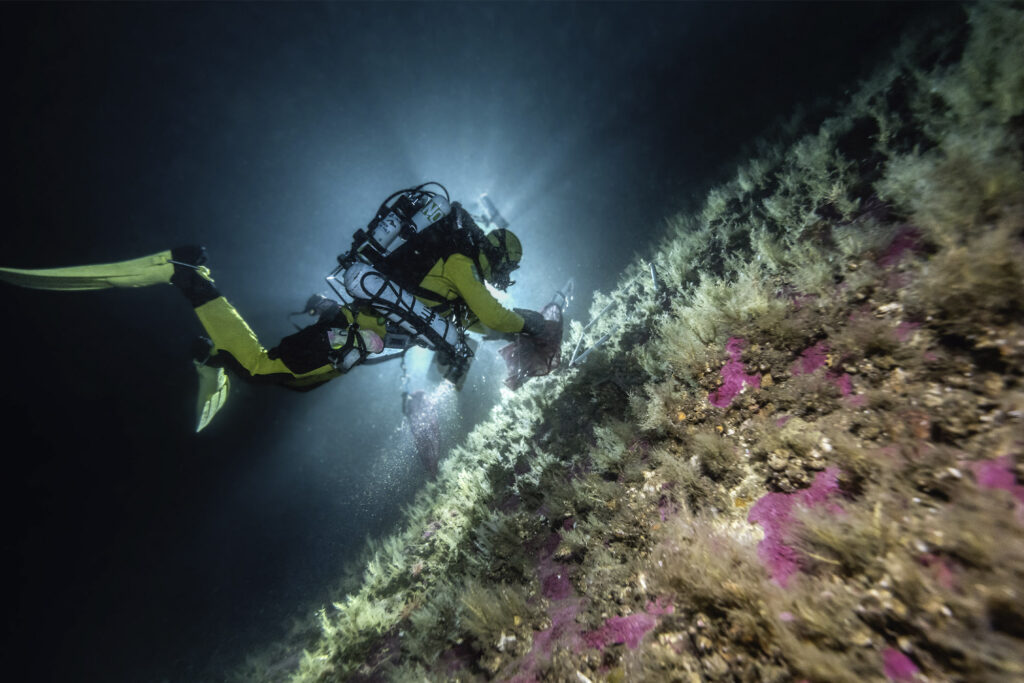
The mission to Svalbard is the first of three such expeditions the Bardouts and their team will undertake between 2022 and 2023, and while each will present unique challenges, exploring under the Arctic ice pack requires particular skill. Adding to the complexity is the challenge of operating from an aluminum-hulled schooner sailboat, the WHY. While it’s able to accommodate 12 crew members and the supplies for an extended voyage, there is little room for error when navigating a small craft through such dangerous terrain.
“Compared to sailing in other parts of the world, each mistake can cost a lot,” says Emmanuelle. “It combines the most difficult things you can imagine; complicated weather, ice, and isolation.”
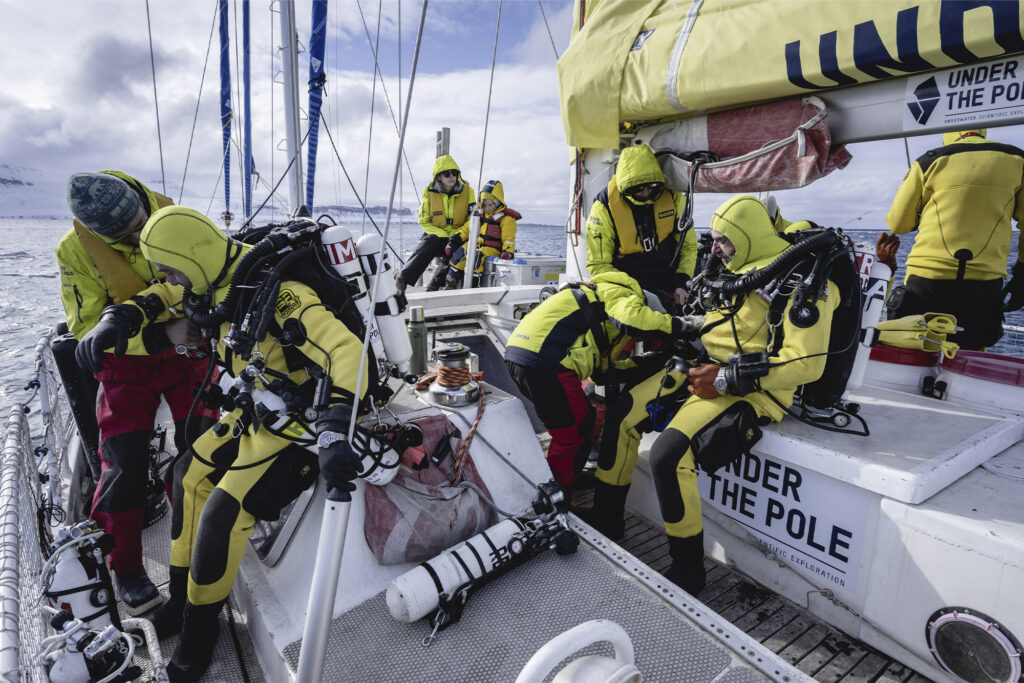
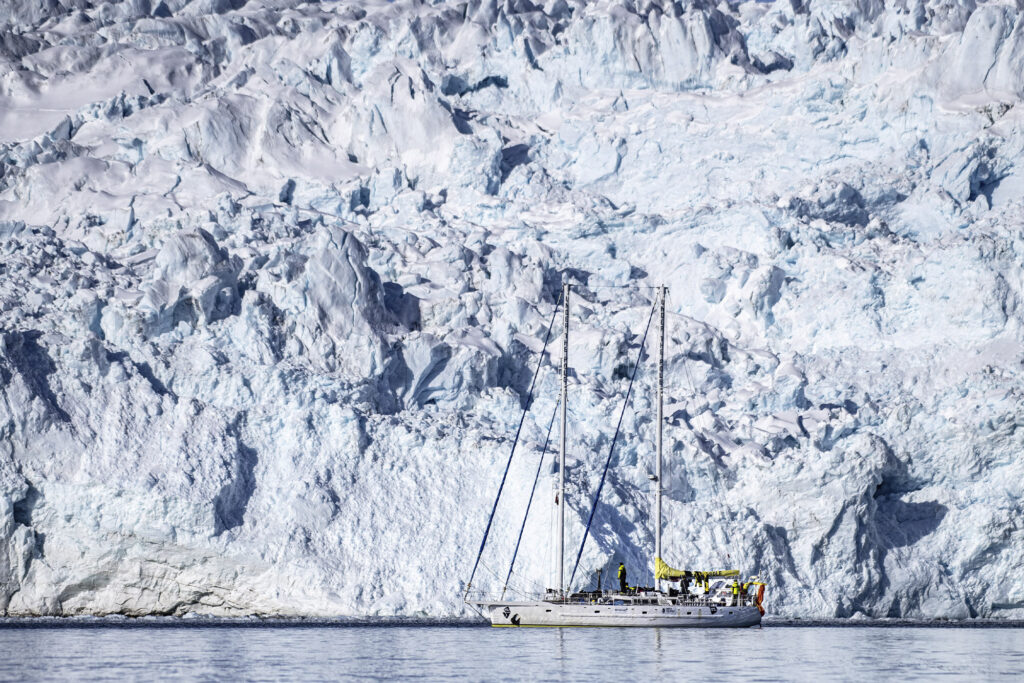
The dives themselves — which far exceed the recreational diving depth of 30 metres — require both extensive training and highly specialized gear. “These are really tough, really difficult dives,” says Bardout. “The cold is something that hurts, and that wears out the teams. It requires particularly substantial equipment.”
Among the equipment most crucial to their mission in Svalbard are rebreather suits, which extend the time divers can spend under the water by recycling exhaled CO2. Another advantage to the rebreathers is that, unlike conventional scuba gear, they don’t emit bubbles, which can disturb animals and their delicate habitats on the sea floor.
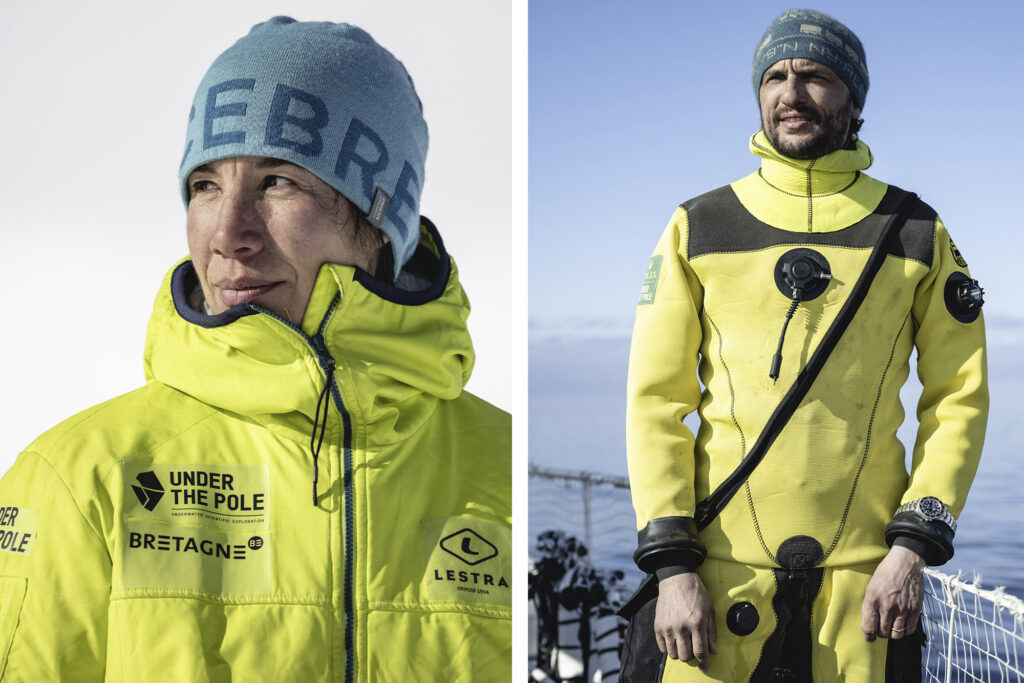
After discovering the arctic marine forest, the Deeplife team spent the next 10 days on-site, installing sensors, taking samples, and recording data. The specimens recovered from the forest were then packed aboard the WHY for their return journey to France, where they were handed off to scientists for further study.
The team’s next missions will take them to the Canary Islands and the Caribbean, where they will study corals. Then, they’ll sail back to the team’s headquarters in Concarneau, France in the summer of 2023.
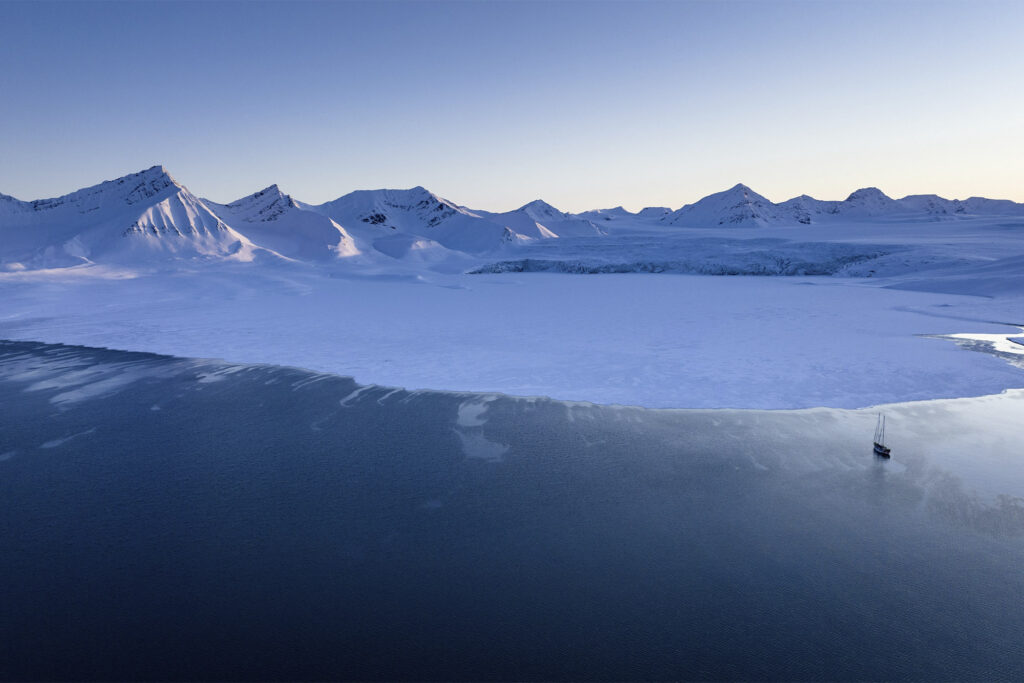
Despite the success of their expedition in Svalbard, Deeplife’s larger mission only begins once they return home and share their findings with the world. By raising awareness of ecosystems like the Arctic marine forests and the existential threats that face them, the Bardouts and their team hope to create a future in which humans live in greater harmony with the planet.
“We have the obligation to work for this change for future generations, to leave behind a living world for them tomorrow so that they too have the possibility to be enriched by it, inspired by it, and dream,” says Ghislain.
